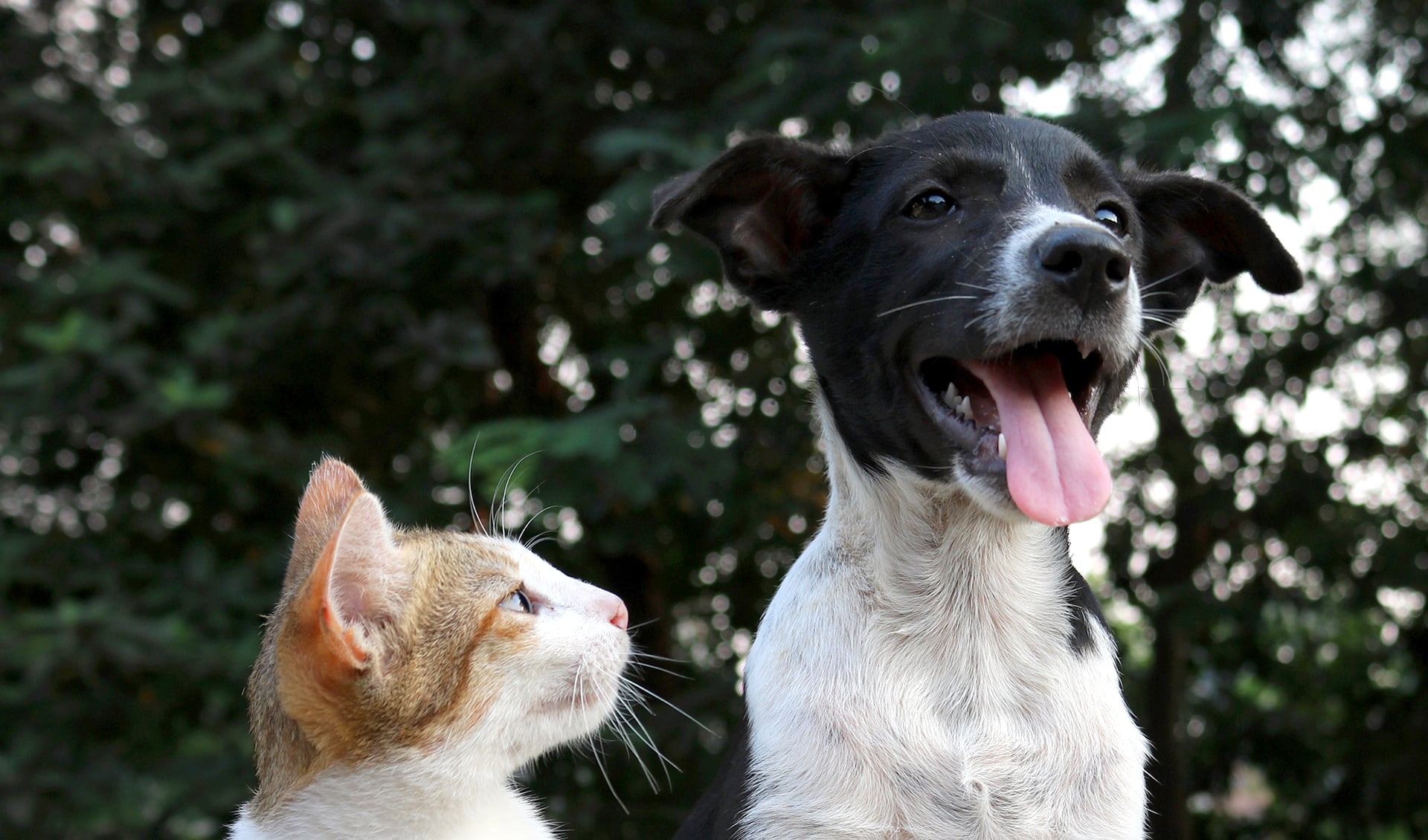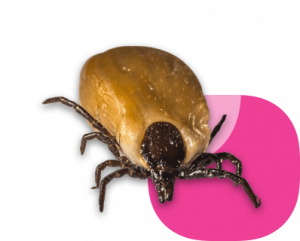-
 About Darwin's Ark
About Darwin's ArkWe’re working with pet owners to explore some of the biggest questions in science. Together, we’ll discover new ways to treat diseases for people and their pets, and live healthier, happier lives.

Darwins’ Ark is a revolutionary, collaborative scientific initiative. We are bringing together the best minds in genetics, medicine and behavior – including pet owners, who know their pets better than any scientist ever could! Through this partnership of community science, cutting edge technology and academic expertise, we’re discovering a far richer and more complete understanding of our world. Teams from the Broad Institute of Harvard and MIT, and the University of Massachusetts Chan Medical School are working with pet owners to understand the interactions between genetics and the environment to work towards bettering the lives of pets and people. Darwin’s Ark lets ordinary pet owners become scientific partners. Our experiences, such as Darwin’s Dogs and Darwin’s Cats, combine genetics and behavior to advance the understanding of complex diseases. We’re a non-profit that subscribes to the open science model. This means we do not own and will never sell your pet’s data. You contribute to an open source database and we share all the new discoveries we find freely with you and researchers around the world. Together we can advance health care for pets and their humans. For details on our process, see our Frequently Asked Questions. Dog owners know their dogs. We’re asking dog owners to contribute their knowledge of their pets to help us learn more about how genetics influence health and behavior. Join us on this exciting journey! Ticks are a serious health issue for pets and people alike. By studying the ticks participants send in, we’re learning about the diseases and discovering possible remedies and solutions to this modern-day scourge. Cats have been our companions for centuries, yet we’ve just begun to unravel (like a ball of yarn!) the complex and diverse genetics that contribute to their health and behavior. We need cat owners’ understanding and expertise to launch this project! Join the mailing list below. We’re studying everything from behavior to food allergies. Our research depends on the support of our partner organizations. A geneticist who has shaped the public’s understanding of behavior and diseases, Elinor is a professor at University of Massachusetts Chan Medical School, and the Director of Vertebrate Genomics at the Broad Institute of Harvard and MIT. Elinor founded Darwin’s Ark based on the fact that millions of animals live with people who are expert observers of their behavior and health. Combining her deep expertise in genomics with “big data” from community scientists, Elinor is revolutionizing the field of complex genetics to improve animal and human health. Passionate about driving positive changes in the world, Charlie’s body of work focuses on advancing scientific and social good. With more than two decades of experience in business, science, and engineering, she brings deep analytics to strategic planning and execution, as well as a long track record of successfully translating ambitious ideas into reality. A trained bioinformatician and an original member of the human genome project, Charlie is heading up Darwin’s Ark Foundation, the non-profit she co-founded to enable the scientific vision of the Darwin’s Ark Initiative. A certified trainer and behavior consultant, Marjie is a leading voice in the animal behavior world and holds numerous professional designations including CDBC, CPDT-KA, KPA CTP. She is the Executive Director of the International Association of Animal Behavior Consultants Foundation (IAABC Foundation), which provides behavior input and expertise to people all over the world. The organization is a strong proponent of scientific understanding and exploration of animal behavior, and of varied disciplines working together in furtherance of understanding and learning. Gaurav’s research is focused on genomic epidemiology. At Darwin’s Ark, he is developing high throughput methods to detect tickborne pathogens and ways to block disease transmission through the study of tick microbiome. His past research projects include vaccine development against valley fever, validation of novel therapeutic targets and identification of the mechanism of resistance in targeted therapies of breast cancer. Diane is focused on how plants and animals receive and store information about their environments. A mathematical biologist, she studied genetics, epigenetics, and molecular biology of developmental disorders of the human nervous system, including fragile X syndrome. Here at Darwin’s Ark, Diane works on understanding the timing and features of the critical period of socialization, during which companion animals form social bonds with humans. Michele has spent over a decade doing wet lab and project coordination work for many animal genetics projects, and developed strategies for efficiently mapping disease loci across species by formulating protocols using gene sequences of zoo animals. Michele is currently responsible for sample processing for multiple projects across Darwin’s Ark, as well as helps facilitate and answer questions from Darwin’s Ark’s community science participants. Shirley is fascinated by the power of computational methods to solve biomedical problems and is currently focused on computational biology analysis in the genetics of complex disease at Darwin’s Ark. Shirley currently works on the Cholera Project in which she is applying both existing and innovative novel mathematical methods designed to identify the host genetic risk to cholera susceptibility and other complex disease or traits. Brittney’s goal is to help people live better lives with their four-legged friends. To do so, she studied animal behavior and worked with service dogs to arm herself with hands-on experience. At Darwin’s Ark, Brittney manages logistics and user support for the Darwin’s Dogs and Cat experiences. She also offers support to our affiliate scientists in their investigations of the critical period of socialization, Wolf Hybrid Project, Working Dog Project and Passive Sampling Project. Kathryn is interested in how changes in developmental timing impact adaptive behavior evolution, and currently focuses on the genetics driving differences in critical periods of socialization between dogs and wolves. She started working with dogs in an attempt to improve rearing practices for service dogs but expanded to include wolves for her studies of organismic and evolutionary biology. Kathryn heads up the Wolf Hybrid Project and helps with the behavioral aspects of projects at Darwin’s Ark. Kate is a research veterinarian studying the genomics of cancers in dogs. Her research focus is on hemangiosarcoma, a common canine cancer that is a natural model for the rare human cancer, angiosarcoma. At Darwin’s Ark, she leads the Dog Cancer Project, the community science project designed to study how environment and genetics affect cancer risks, as well as develop improvements in the detection and treatment of cancer in dogs and people. Kathleen is committed to bridging genomics and neuroscience by looking at how genetics contribute to behavioral differences and disorders. Her past research spanned diverse topics from the genetic diversity of marine eelgrass to the role of “jumping genes” in neurodegeneration. Kathleen currently focuses on determining genetic differences and their effects on various regions and cells of the brain, as well as the relevance of these differences in psychiatric disorders. Ross’s research interest is in the processes of evolution and domestication, and how the resulting selective pressures contribute to diseases susceptibility. A trained biochemist and molecular biologist, Ross has worked on canine disease genetics with an emphasis on cancer and currently provides wet-lab support to various projects related to Darwin’s Ark. He is pursuing postgraduate work in bioinformatics, with the aim of being able to contribute both in the lab and in the analysis. Frances is a veterinary scientist and Assistant Professor at University of Massachusetts Chan Medical School and is committed to the advancement of comparative and translational canine science through research collaboration. Having raised 15 guide/service dog puppies, Frances has a special passion for working dogs and background in the working dog community. She has particular research interests in genetic and genomic studies in this population, not only to investigate molecular pathways relevant to canine and human disease, but also to directly improve the health, behavior, and success of working dogs. Jason is a trained biomedical informatician, and has been involved in a wide variety of projects, ranging from the investigation of patterns of somatic mutation in canine lymphoma to annotation of the Weddell seal genome, to clustering ferret samples for genetic relatedness. At Darwin’s Ark, Jason typically contributes to pipeline and tool development, analysis design and implementation, computational resource management, and computational instruction.
Darwin’s Ark Initiative


The “Science” of Community Science
OUR PROJECTS
DOGS

TICKS

CATS

OUR PARTNERS

DONATE
Darwin’s Ark is a non-profit scientific research project seeking answers to common health and behavioral issues. We can’t succeed without your help. Please join us as a valued contributor. Thank you!

LEADERSHIP

Elinor K. Karlsson
Founder, Chief Scientist

Charlie Lieu
Executive Director

Marjie Alonso
Advisor
TEAM MEMBERS

Gaurav Chauhan
Scientist

Diane Genereux
Scientist

Michele Koltookian
Project Manager

Shirley Xue Li
Scientist

Brittney Logan
Senior Project Manager

Kathryn Lord
Scientist

Kate Megquier
Scientist

Kathleen Morrill
Scientist


Ross Swofford
Scientist
Frances Chen
Assistant Professor

Jason Turner-Maier
Computational Biologist
FORMER TEAM MEMBERS

Linda Boettger

Jesse McClure

Hyun Ji Noh

Jeremy Johnson

Jessica Hekman
